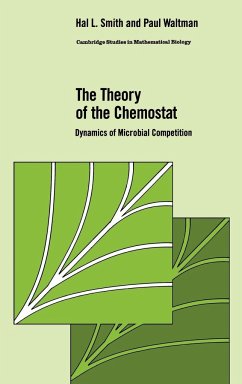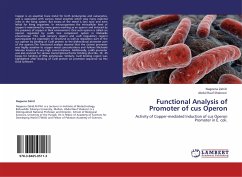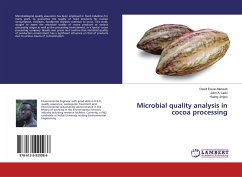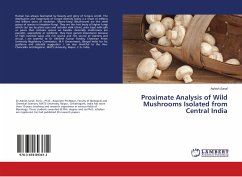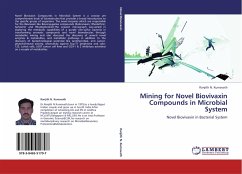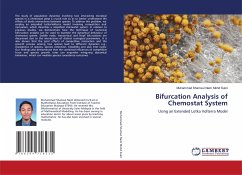
Bifurcation Analysis of Chemostat System
Using an Extended Lotka Volterra Model
Versandkostenfrei!
Versandfertig in 6-10 Tagen
36,99 €
inkl. MwSt.

PAYBACK Punkte
18 °P sammeln!
The study of population dynamics involving two interacting microbial species in a chemostat plays a crucial role so as to better understand the effects of biotic interactions between species. To address this problem, we employ an extended Lotka-Volterra model involving competition and mutualism, which describes a simplified chemostat system. In relation to previous studies, we demonstrate how the technique of numerical bifurcation analysis can be used to examine the dynamical behaviour of chemostat system. Saddle node, transcritical and Hopf bifurcations are discovered due to the interactions ...
The study of population dynamics involving two interacting microbial species in a chemostat plays a crucial role so as to better understand the effects of biotic interactions between species. To address this problem, we employ an extended Lotka-Volterra model involving competition and mutualism, which describes a simplified chemostat system. In relation to previous studies, we demonstrate how the technique of numerical bifurcation analysis can be used to examine the dynamical behaviour of chemostat system. Saddle node, transcritical and Hopf bifurcations are discovered due to the interactions of distinct ecological parameters. It is also shown that the joint effects of competitive interaction and the growth process among two species lead to different dynamics e.g., coexistence of species, species extinction, bistability and also limit cycles. Our findings also demonstrate that the combined influences of competitive force and species growth rates can engender intriguing dynamical behaviour, which can mediate species coexistence outcomes.



